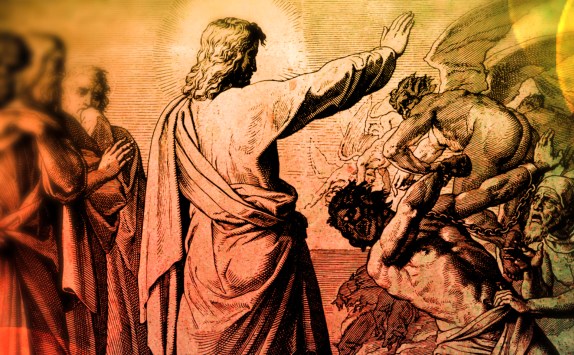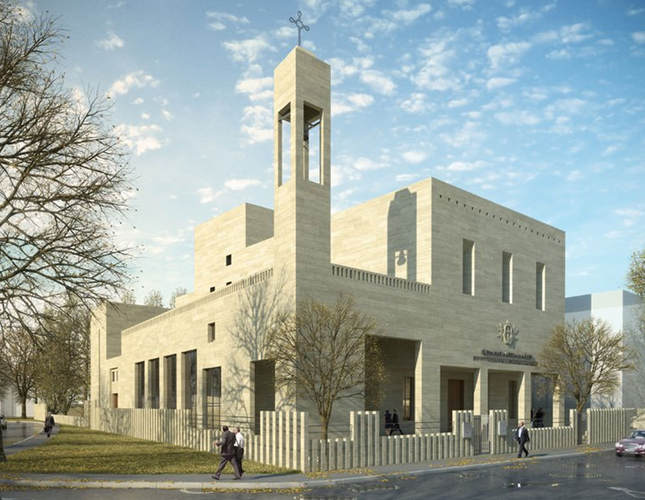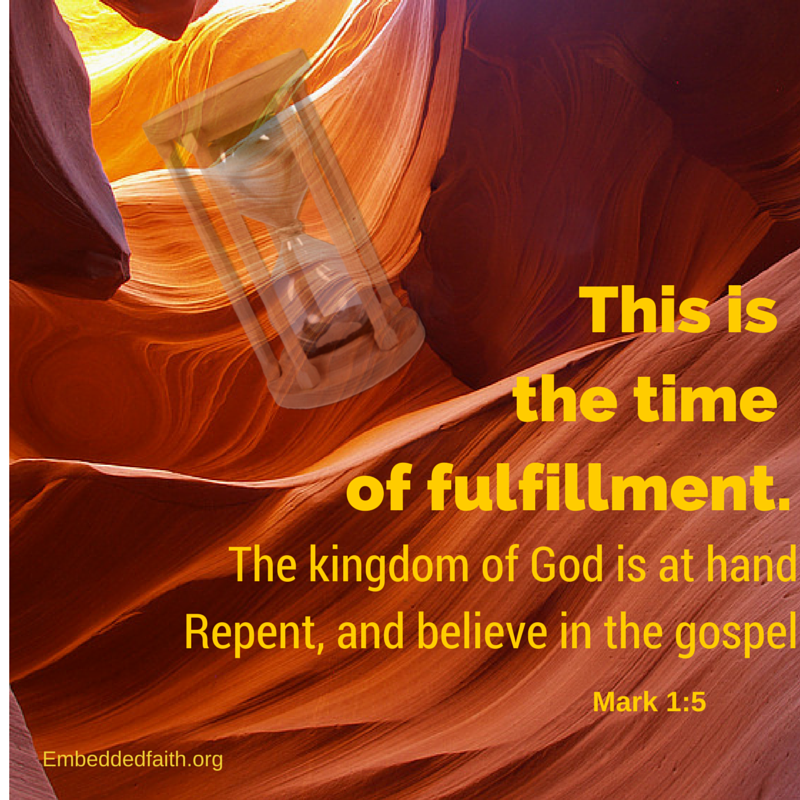Sermon for Epiphany 4B, preached on Sunday, January 28, 2018, by the Rev Daniel M. Ulrich.
“Authority” is a long
four letter word. We don’t like
authority, that is, unless we have it.
We don’t like the idea of others being able to tell us what we can and
can’t do. This goes against the very
core of our American sense freedom.
We’ve turned authority into a bad thing, but it’s not, at least not in
and of itself.
We don’t like authority because those who have it often abuse
it. They use it to lord over us. We even use to control others, to make them do
what we want…but not Jesus. He doesn’t
use His authority to keep us down; He uses it to raise us up to everlasting
life. Jesus’ authority is the authority
for salvation.
Christ’s authority isn’t like
man’s. Man’s authority comes from
others. For example, police officers
have the authority, the power, and the right to arrest criminals because
they’ve been given this authority by the government. It’s the government’s responsibility to
protect its citizens and to punish evil.
If you’re not a police officer you have no right to investigate crimes
or arrest criminals. If you detain
someone, that’s called kidnapping, but police officers have this authority.
The authority of the government also comes from outside of
itself. It comes from God. St. Paul explains this in Romans 13. Ultimately all authority comes from
God. He gives it. He gives it to the government for the purpose
of protecting and caring for people. He
gives it to parents for the purpose of raising up and caring for children. All authority comes from God for the good
purpose of serving others. Authority is
good when used according to this purpose, but we sinners don’t always do
this.
We don’t use the authority God’s given us for the benefit of
those around us. Instead we see it as
power to satisfy our wants, to be in control, to have others listen to us, to make
them do what we tell them to do. We like
it when others serve us.
We also don’t honor those with authority as God planned it
either. We see this very clearly in
God’s 4th Commandment: Honor your father and mother. Of course all of us know of times when we
haven’t done this, both as children and adults.
As children we’ve disobeyed, talked backed, ignored house rules. As adults, we’ve thought poorly of our
parents, calling them crazy, thinking they don’t know what they’re talking
about.
Of course this commandment doesn’t just apply to our moms and
dads. Luther explains this is extended
to all in authority. We should fear and love God so that we do
not despise or anger our parents and other authorities, but honor them, serve and obey them, love
and cherish them. How often do we
not do this? We speak ill of those in
authority. We call them names and
degrade them. This isn’t the proper
respect God calls us to show to them, respect that can be given even if we
disagree with them.
An excellent example of God’s design and plan for authority in
Moses. God called Moses to lead His
people from slavery in Egypt to freedom in the Promised Land. Moses was to serve the people and they were
to follow and listen to Moses because he was God’s man and prophet. God gave Moses authority, not to abuse
Israel, but to serve them. The people of
Israel needed Moses to be their mediator between God and them because they were
sinners and they couldn’t stand before the mighty voice of God and the great
fire of His presence.
Near the end of Moses’ life God promised to raise up for Israel
a prophet like him. “I will raise up for them a prophet like you from among their
brothers. And I will put my words in His
mouth, and He shall speak to them all that I command Him” (Dt 18:18). This promised prophet would serve Israel
with authority, He’d speak only the words of God. Jesus fulfills this promise. Christ as all authority because of who He is,
the very Son of God.
During Epiphany we see Jesus’ identity revealed. We see Him as the King worshiped by the
Magi. At His baptism, the Father’s voice
announced that Jesus is His beloved Son.
Today, we see His authority, speaking the very words of God. The people in the synagogue were astonished
as Jesus taught because they saw His unique authority. It wasn’t like when the scribes taught. They always said, “Thus says the LORD.” Their authority came from God, from His Word,
but Jesus’ authority came from Himself, for He is God, the very Word of God
Incarnate.
The evangelist John writes, “In
the beginning was the Word, and the Word was with God, and the Word was
God. He was in the beginning with
God. All things were made through Him,
and without Him was not any thing made that was made” (Jn 1:1-3). Jesus, the very Son of God, the Word
Incarnate, the Word through whom all things were made, fulfills the promise of
the prophet like Moses. He leads God’s
people. He is God’s Man among the people,
to serve them. He is their
mediator. And His authority is greater
than Moses’, for He has authority over all things. He even has authority over life and death.
Jesus displayed this authority when
He healed the man with an unclean spirit.
This spirit recognized who Jesus was.
He cried out,”What have you to do
with us, Jesus of Nazareth? Have you
come to destroy us?” (Mk 1:24). Yes! Yes He did!
Christ came to overcome the unclean spirits, to overcome Satan, sin, and
death. That’s the purpose of Jesus’
authority, to save God’s people, to save you from sin and death, to make you
clean and give you life.
Jesus’ authority is in service to
you. The One who has authority over all
creation, over life and death, has come to serve you, to give you life. Jesus said, “I lay down my life that I may take it up again. No one takes it from me, but I lay it down of
my own accord. I have authority to lay
it down, and I have authority to take it up again” (Jn 10: 17-18). Christ willing laid down His life on the
cross for you. He shed His blood so that
it might wash over you and cleanse you from you sin; so that you might be pure
and holy. Christ also took His life up
again. Rising from the dead, walking out
of the tomb, Jesus overcame death and He gives you life. No longer is death then end. No longer does death have authority and power
of you. In Christ you have everlasting
life and salvation.
Our Lord is the Holy One of God and He has all authority. This authority is perfectly good, used only in
service to you. Jesus’ authority is the
authority for salvation, for your salvation.
In His name...Amen.








